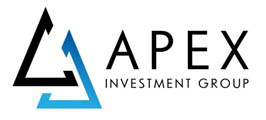Direct Indexing
WHAT IS DIRECT INDEXING?
Direct indexing is a personalized investment strategy that allows you to directly own the individual securities of
a benchmark index, such as the S&P 500 ® through a separately managed account (SMA). You get the same
kind of broad market exposure but with greater control, customization, and tax efficiency compared to
traditional index mutual funds or ETFs.
DIRECT INDEXING AIMS TO:
- Closely mimic the performance of a market index while maintaining a low tracking error, keeping your returns aligned with the benchmark, while allowing customization.
- Employ tax-loss harvesting strategies to offset capital gains in your taxable portfolio-potentially generating tax alpha, or excess after-tax returns beyond the benchmark.
- Enable customized portfolio construction – investors can tailor their portfolios to reflect personal values, client-specific needs, investment restrictions, or concentrated stock positions, while still closely tracking the underlying index.
TAX-EFFICIENT INVESTING
ENHANCED AFTER-TAX RETURNS
Direct indexing uses tax-loss harvesting to generate tax alpha – the added value from improved after-tax
performance. Unlike traditional alpha, tax alpha reflects the benefit of tax-efficient strategies that can boost
long-term portfolio growth.
TAX-EFFICIENT TRANSITIONS
When transitioning into a direct indexing strategy, in-kind transfers may be used to avoid triggering capital
gains taxes. Over time, the portfolio can be carefully transitioned to match the target index with minimal tax
impact.
HOW MUTUAL FUNDS, ETFs, AND DIRECT INDEXING DIFFER
- While mutual funds and ETFs are commonly used to gain broad market exposure , they do so by offering indirect ownership of the securities in a benchmark index. In contrast, direct indexing allows you to own individual stocks that closely track the index—providing a higher level of customization and tax efficiency .
- With direct indexing, your portfolio is built from the individual stocks of the index rather than a pooled fund, allowing you to tailor holdings to your goals or preferences, strategically harvest tax losses to potentially generate tax alpha, and even fund the account with in-kind securities—making it a tax-efficient option for transitioning appreciated assets.
| POSSIBLE BENEFITS | MUTUAL FUNDS | ETFs | DIRECT INDEXING |
|---|---|---|---|
| Seeks to Match or Exceed Benchmark Performance | ✓ | ✓ | ✓ |
| Tax Efficiency | X | ✓ | ✓ |
| Potential to Generate Tax Alpha | X | X | ✓ |
| Portfolio Personalization | X | X | ✓ |
| In-Kind Funding Capability | X | X | ✓ |
All information has been obtained from sources believed to be reliable, but its accuracy is not guaranteed. There is no representation or warranty as to the current accuracy, reliability, or completeness of, nor liability for, decisions based on such information and it should not be relied on as such.
Apex Investment Group, LLC (“Apex Investment Group”) is a registered investment advisor. Advisory services are only offered to clients or prospective clients where Apex Investment Group and its representatives are properly licensed or exempt from licensure.”
Still have questions on Direct Indexing?
